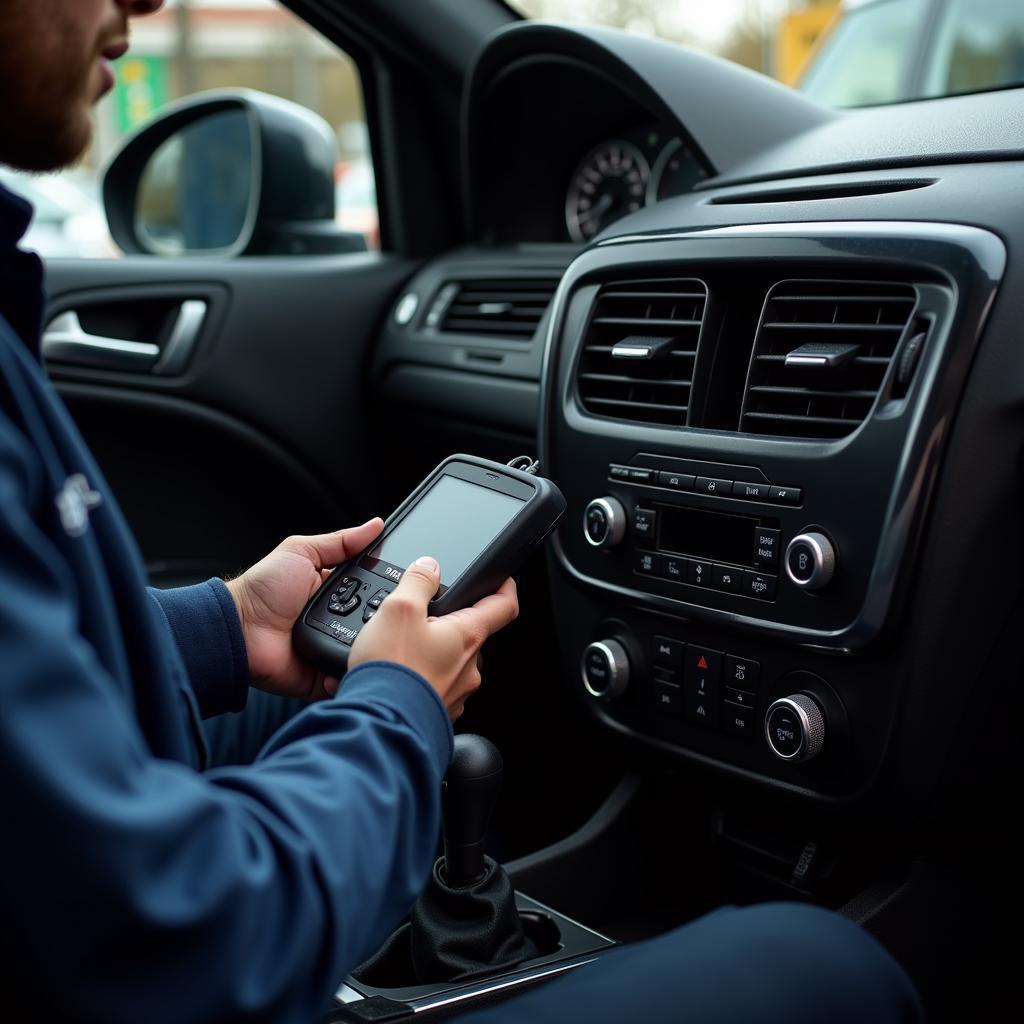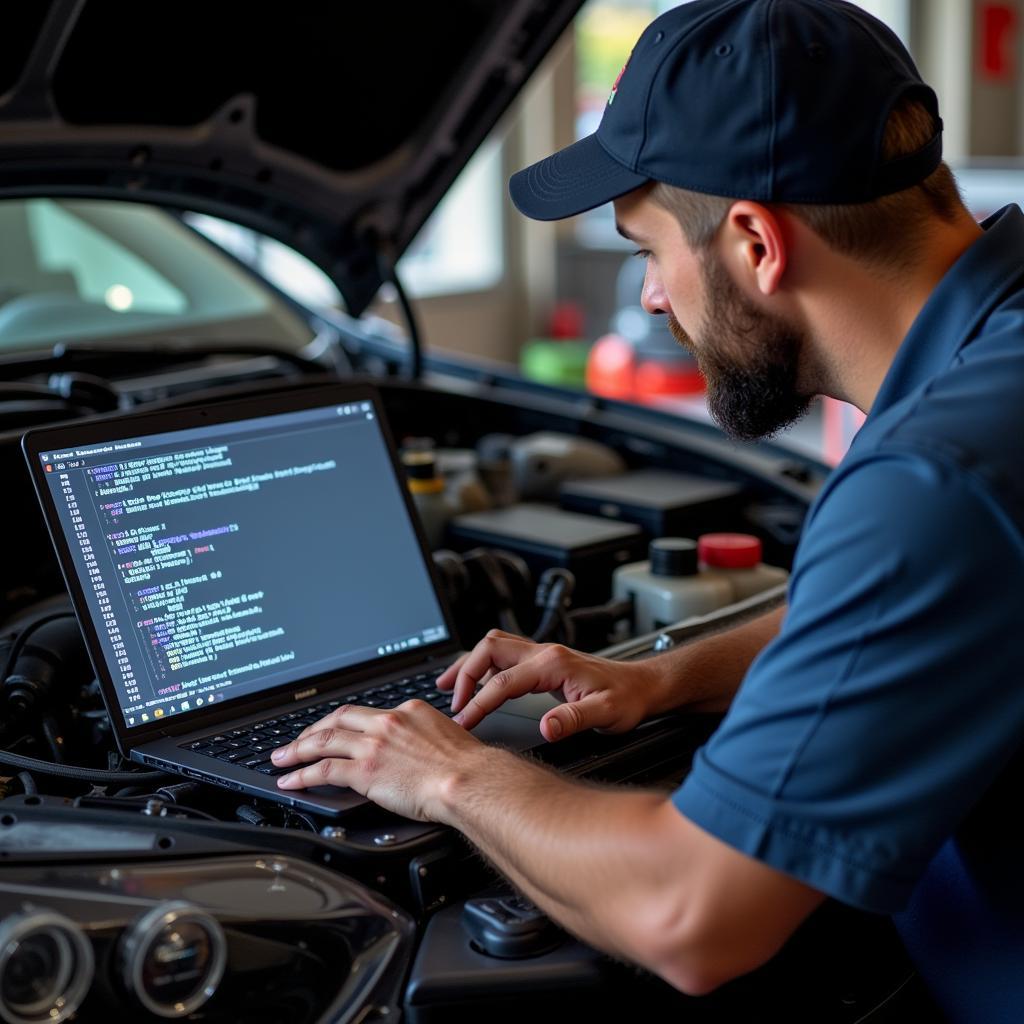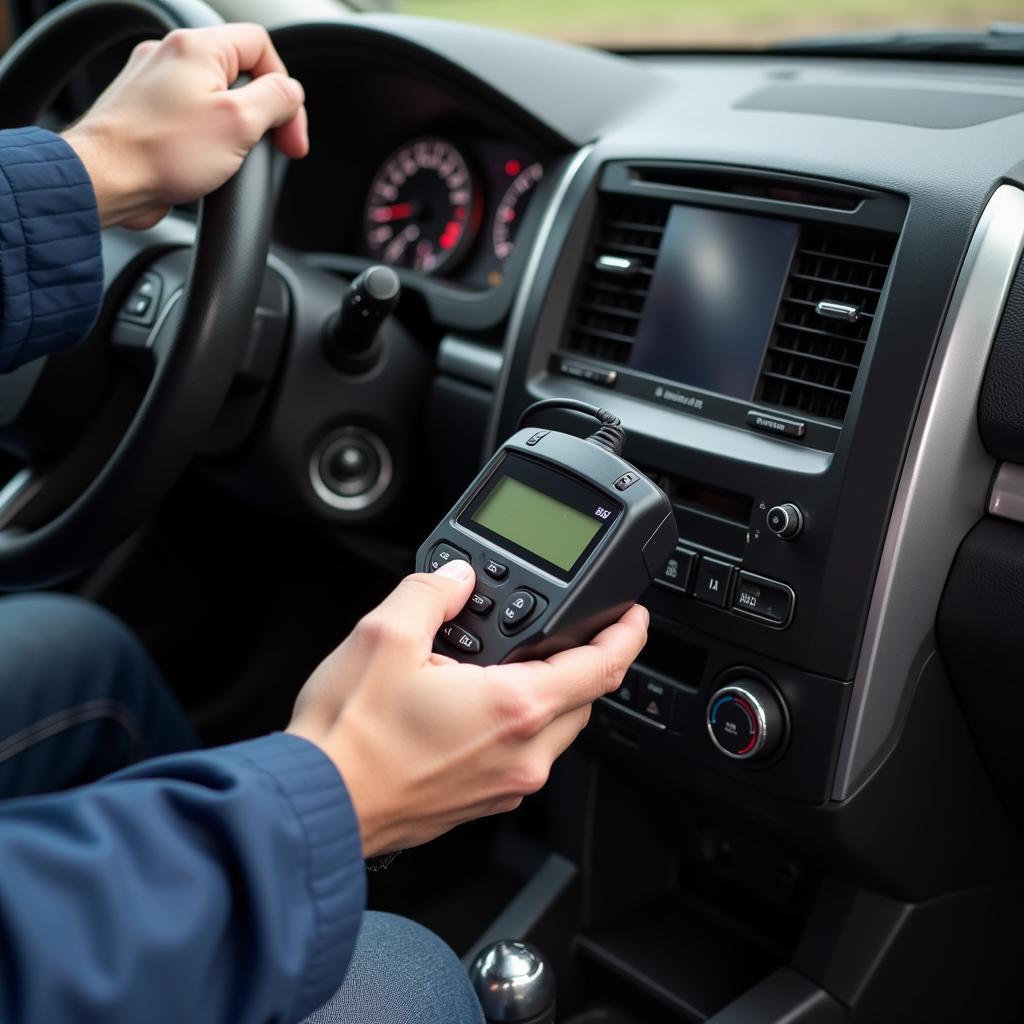A car diagnostic check is like a health checkup for your vehicle. It involves using a specialized tool, known as a car diagnostic scanner, to communicate with your car’s computer system. This system, also called the Engine Control Unit (ECU), monitors various sensors placed throughout your car that collect data about its performance.
 Car diagnostic scanner connected to a car’s OBD-II port
Car diagnostic scanner connected to a car’s OBD-II port
Why are Car Diagnostic Checks Important?
Think of it this way: your car’s ECU is constantly gathering information about how your engine is running, emissions levels, and the functionality of various components like the transmission, airbags, and brakes. A diagnostic check translates this complex data into readable codes, allowing mechanics (or even car owners with some know-how) to understand what’s going on under the hood.
By analyzing these codes, mechanics can:
- Identify the root cause of a warning light on your dashboard. Whether it’s the check engine light, ABS light, or airbag light, a diagnostic check can pinpoint the problem.
- Diagnose issues that are impacting performance. This could be anything from a misfire in the engine to a problem with the transmission shifting.
- Prevent minor issues from becoming major (and expensive) repairs. Regular diagnostic checks can help catch problems early on.
 Mechanic analyzing diagnostic trouble codes on a laptop
Mechanic analyzing diagnostic trouble codes on a laptop
What Can a Car Diagnostic Check Tell You?
A car diagnostic check can reveal a wealth of information about your car’s health, including:
- Engine Performance: Issues like misfires, fuel/air mixture problems, and faulty sensors.
- Transmission: Problems with shifting, slippage, or fluid levels.
- Emissions System: Malfunctions with the catalytic converter, oxygen sensors, or evaporative emissions system.
- Braking System: Issues with the ABS system, traction control, or brake fluid pressure.
- Airbag System: Faults in the airbags, seatbelt sensors, or deployment system.
- Other Systems: Depending on the sophistication of the scanner, it can also reveal problems with the steering, suspension, climate control, and more.
Types of Car Diagnostic Checks
There are different types of car diagnostic checks, ranging from basic to advanced:
- OBD-II Code Reader: These are basic scanners that can read and clear the most common diagnostic trouble codes. How to run a diagnostic check on your car.
- Professional-Grade Scanners: These offer a wider range of features, including the ability to view live data streams, perform actuator tests, and access manufacturer-specific codes. What does a diagnostic check on a car.
How Much Does a Diagnostic Check Cost?
The cost of a diagnostic check can vary widely. Some auto repair shops offer them for free, while others may charge a fee. Can I do diagnostics check on my own car
 Car owner using an OBD-II scanner at home
Car owner using an OBD-II scanner at home
When Should You Get a Car Diagnostic Check?
- When a warning light appears on your dashboard.
- Before buying a used car.
- As part of regular car maintenance. How much is a diagnostic check on a car
- If you notice any changes in your car’s performance.How to use a car diagnostic checker
Conclusion
A car diagnostic check is an essential tool for maintaining the health and performance of your vehicle. It empowers car owners to be proactive about maintenance, identify potential problems early on, and potentially save money on costly repairs in the long run. Remember, regular checks and prompt attention to warning signs can keep your car running smoothly for years to come.

Leave a Reply